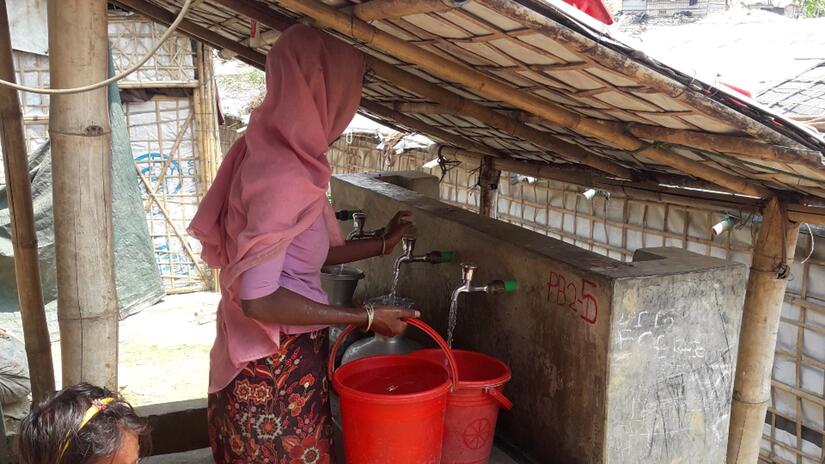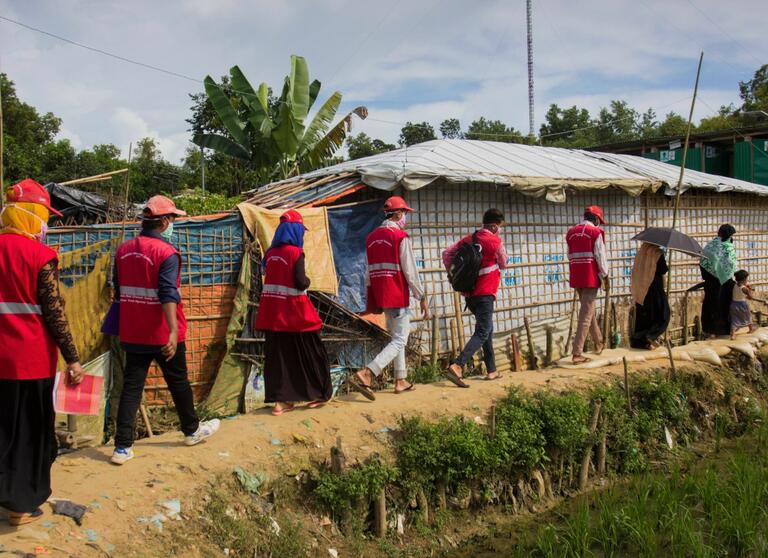“We have good water like medicine. It tastes good and does not cause disease but if we have this water and not enough toilets how can we stop disease?” said Halama Khaton, 40, who fled to Bangladesh from Rakhine in August 2017. “When we came at first, the water was not good. There was one borehole and the water had too much iron. You could see the iron colour and it tasted bad but we had no choice. People were sick but we didn’t know if it was because of the water or something else.”
The Bangladesh Red Crescent is providing clean water and sanitation for people from Rakhine, with the support of the International Federation of Red Cross and Red Crescent Societies (IFRC). Perched on top of a hill at the camp are at least two 5,000 litre tanks that supply water to seven tap stands. Community volunteers maintain the pump and carry out chlorine treatment and testing to keep the water safe.
Mosi Ullah, a camp volunteer from Rakhine who works with the IFRC water and sanitation team, said: “During the rainy season, the solar panels were not working because it was cloudy. We had to install a generator to pump the water from the borehole to the tank up on the hill.”
Access to clean water is not the only challenge in Cox’s Bazar – helping people to reduce hygiene risks in tough conditions is also crucial. Bangladesh Red Crescent volunteers go door-to-door, sharing tips and doing practical demonstrations with camp residents.
Since August 2017, the Red Cross Red Crescent has reached more than 93,000 people through hygiene promotion. Over 40 million litres of safe water have been distributed to more than 170,000 people living in Cox’s Bazar camp and close to 500 toilets and 200 washing facilities have been built. Nearly 70,000 jerrycans have been provided so residents can safely store water for use at home. However, the needs are immense. More must be done to meet minimum humanitarian standards to ensure that no one is left behind.





